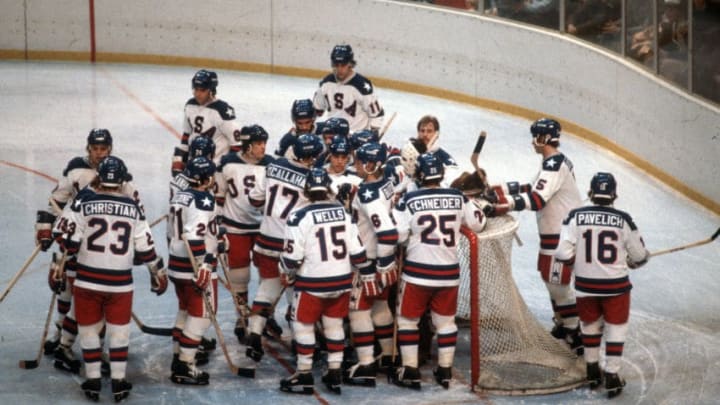The Miracle on Ice happened 40 years ago in a tiny New York village. Yet for those who witnessed it, and many who didn’t, it echoes to this day.
My grandmother knows nothing about hockey.
She can also tell you exactly where she was on Feb. 22, 1980.
Her story may be different in the details but not in tone from millions of Americans that evening. It was then the United States defeated the Soviet Union in the Olympic Ice Hockey semifinals at Lake Placid, N.Y.
A victory for the ages.
It was seen stateside as good over evil. Capitalism over communism. And it was done in the face of unspeakable odds.
The Russians used professional players masquerading as soldiers of the Red Army. Players who humbled the National Hockey League All-Star team in the 1979 Challenge Cup, winning the decisive tilt by a 6-0 count.
The Americans? Their average age was 22. None were professional, per Olympic rules. The head coach was Herb Brooks, the final cut of the 1960 Squaw Valley team which won the United States’ last gold medal in Ice Hockey. In the ensuing four Olympiads, the Soviet Union won each time. Over that span, Russia outscored its opponents, 175-44.
In the ’80 Olympics, the Soviets played five group-stage contests leading up to their meeting with the Americans. They won all five, averaging 10 goals per game.
Thirteen days before their eventual matchup in Lake Placid, the two teams met for an exhibition at Madison Square Garden. The Russians won comically, 10-3.
Going into the Olympic tournament, Las Vegas sportsbooks installed the United States as a 1,000-1 underdog. Bet a dollar, win a thousand.
When the semifinal began, it appeared more of the same. The Soviets jumped out to an early 1-0 lead. The Americans tied it. Russia scored again. The United States tied it up with one second remaining in the first period. The Russians took a 3-2 lead after two periods. The Americans knotted the game 3-3 with 11:21 left in the third and final period. A minute and 39 seconds later, U.S.A. captain Mike Eruzione fired a low wrist shot scraping inside the left post. 4-3.
Fittingly, Eruzione translates from the word eruption. Forty years ago, he caused one of the biggest in American sports history.
Despite an avalanche of offensive pressure from the Soviets, the U.S. held on behind goaltender Jim Craig and his 36 saves.
The Americans won. A true miracle.
Occasionally, a moment instantly presents itself in the proper context. This was such an event.
The 1980 U.S. Ice Hockey team didn’t end inflation in this country. It didn’t shorten the gas lines or bring the 52 American hostages home safely from Iran. It didn’t heal wounds from the turbulent 1970s or soothe our national crisis of confidence, as former president Jimmy Carter so famously stated.
What the team did was provide a brief emotional refuge. Winning 4-3 over the Soviets on a sheet of ice in a small New York town allowed people to feel good again. Maybe for three hours. Maybe a day. Maybe a week. The win meant more than one number on a scoreboard surprisingly being larger than the other.
It meant belief. If that team could beat those guys, maybe I can beat the odds, too.
My grandmother is an old widow now. She’s always kept a neat house and has gotten rid of most everything save clothes, furniture and photos.
If you go into her laundry room, there are three items. The washer, dryer, and a full-length poster of the 1980 United States Ice Hockey Team.
Some things mean too much to forget about, to move on from.
